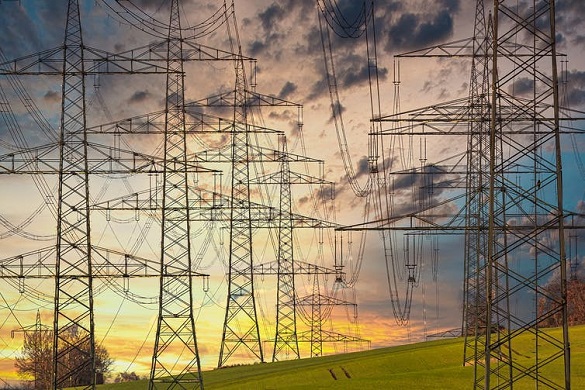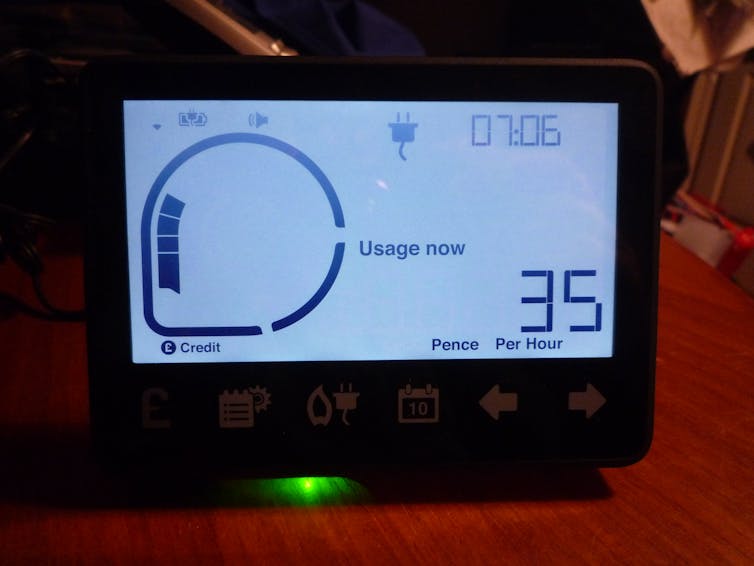
UK energy systems are increasingly going digital. Analogicus/Pixabay
This article, by Dr Caitlin Robinson from the University of Liverpool’s Department of Geography & Planning and Joseph Chambers from Sheffield Hallam University, was originally published for “““The Conversation’.
Across the world, energy systems are going digital. Electricity bills are more and more likely to pop up as an alert on your phone rather than popping through your letterbox. And many people now monitor their energy usage at home through smart meters that predict charges in real time.
In the UK, nearly all energy companies now rely on digital forms of communication to reach and engage with their users. And as the energy system transitions towards greener and more flexible ways of serving its customers, we’re likely to see digitalisation accelerate.
Digital systems certainly have their benefits, including easier service monitoring for suppliers and more clarity around bill breakdowns for customers. Yet despite the UK being a global leader in digital technology, there’s still a significant “digital divide” between those who have full access to the digital world and those who remain excluded from it. This gap has only expanded during the pandemic.
There are hundreds of ways for people to become digitally excluded. Some might not have access to digital technologies, or be able to afford them. Others might own them, but not know how to use them – or how to learn. And some might not be inclined to use new technologies in the first place.
People’s living arrangements can also contribute to digital exclusion. Those stuck in temporary or precarious housing, including low-income families, refugees and migrants, may struggle – legally or financially – to add money-saving energy technologies to their homes.

AmberNectar/Flickr, CC BY-NC
Financial inequalities can also heighten this exclusion. Energy companies may block people with debts from accessing the digitally monitored, cheaper energy tariffs. And it can be very challenging for people without proficient levels of English to deal with digital services that are only offered in English.
Consequences
Overall, it’s the most vulnerable within society – refugees, older people, low-income families, disabled people and many others – who are disproportionately affected by digital exclusion.
The consequences of this can be severe. If you can’t search for better deals, understand what payments are being taken, access smart technologies like meters or learn about ways to increase energy efficiency, it becomes much harder to save money and could easily lead to a cycle of missed bills and defaulted payments. Research suggests digitally excluded customers pay an average of £348 more per year on their energy bills.
Many vulnerable groups rely on traditional forms of communication with their energy suppliers, like letters, phone calls or visits. When these are disrupted, for example through pandemics or extreme weather events, inability to pay or understand bills can lead to life-threatening situations, like illness due to cold homes.
Solutions
The good news is that there are ways to overcome the challenges of navigating these systems. For refugees, migrants, older people and those less familiar with the UK’s digital energy system, barriers can be overcome by turning to trusted connections such as friends, family or community organisations.
These connections provide people with advice and guidance about energy services, translate bills, help them explore how to use new technologies or act as the mediator between them and energy suppliers.
Energy companies appear increasingly aware of the challenges associated with digital exclusion for their customers. As already encouraged by UK energy regulator Ofgem, companies shouldn’t rely solely on digital forms of communication. Instead, they should explore and respond to how their consumers prefer to interact with them. This could take a variety of forms, like developing in-person group support sessions in areas where digital exclusion is high.
And the importance of community shouldn’t be overlooked. Local age and language support groups are vital to help people navigate a complex and often expensive energy system on their own terms.![]()
Joseph Chambers, Researcher in Digital Inequality, Sheffield Hallam University and Caitlin Robinson, Lecturer in Urban Analytics, University of Liverpool
This article is republished from The Conversation under a Creative Commons license. Read the original article.